The Irrational July 12, 1998
I’d like to tell a story about a very special day, the July 12, 1998. There were three things: France won for the first time the World cup in football after decades of losing; it was my 14th birthday; and I lost at European youth chess a very important game, in a purely irrational way… something I have still difficulties to explain 25 years after (and even beginners can wonder what has happened). As we’re July 12 today, I’m thinking it’s a good opportunity to take a step back and reflect on how these three things irrationally relate (or not?)
Mureck and EU chess
We are in 1998, in the middle of nowhere in Europe, more specifically in Mureck, Austria, at the close border with Slovenia. After a quite long trip in train with a subset of the french national team, the tournament has started July 8. There were several categories: U10, U12, U14, U16 , U18 with boys and girls. There were strong players coming from different European countries like Russia, Ukraine, England, etc. Radjabov, now 2747 Elo, was there in U12 for instance. Perhaps not so famous at that time, but lots of future international (grand) masters. For France, there was among others Marie Sebag, that actually won the European title in 1998.
I was playing U14, representing France since I was champion U14 a few months ago. Sébastien Mazé, now a strong grand master, was also there for U14. I was 2205 Elo FIDE in July, quite good, capable of beating international masters, well-prepared with Cannes chess club and strong coaches like Darko Anic or Xavier Parmentier. Xavier was the head of the delegation. He was key to the success of Sebag for instance.
The beginning of the tournament was very nice for me: I won the three first games! I lost the fourth game at table 1 against the strongest Elo and favorite player Yuri Drozdovskij: bad preparation and too much respect. Overall, good games and lots of confidence!
And meanwhile, in football, France had crushed Croatia in semi-finals, with the incredible Thuram!
Before the game
And then comes July 12. It’s round 5 (out of 9), 3 out of 4 points, Table 3 I think, against the Russian U14 champion Alexander Riazantsev. He was already 2335 Elo. He is now a strong grand master, with 2600+ Elo.
I didn’t remember exactly the preparation before the game. In 1998, there were already laptops, some chess databases (Chessbase!), and chess engines (Fritz, neither Deep Blue nor Stockfish level though), but well it was not like in 2023 ;) Not pretending being the old guy, but I had to phone my family with a call box, euros were not a thing, etc!
Xavier prepared the match with me. He passed away in 2016 and was an exceptional coach. I knew him since 1992 where he showed me some openings just before round 1 of french championship U8 in Sucé sur Erdre. I was playing for Draguignan, with 1400 Elo, and knew little about real openings.
Xavier helped me and others to prepare games in Mureck. I’m pretty sure we had a pretty light preparation. We had limited access to some games (and so my opponent). I would say less than 10 games. I think we simply looked at previous games of the tournament of my opponent. We knew he was playing the French opening with black pieces against 1. e4, but not so sure. Anyway, the plan was as follows: against 1. e4 e6 2. d4 d5 3.Nc3 Bb4, instead of the usual 4. e5, let’s go for the unusual 4. a3.
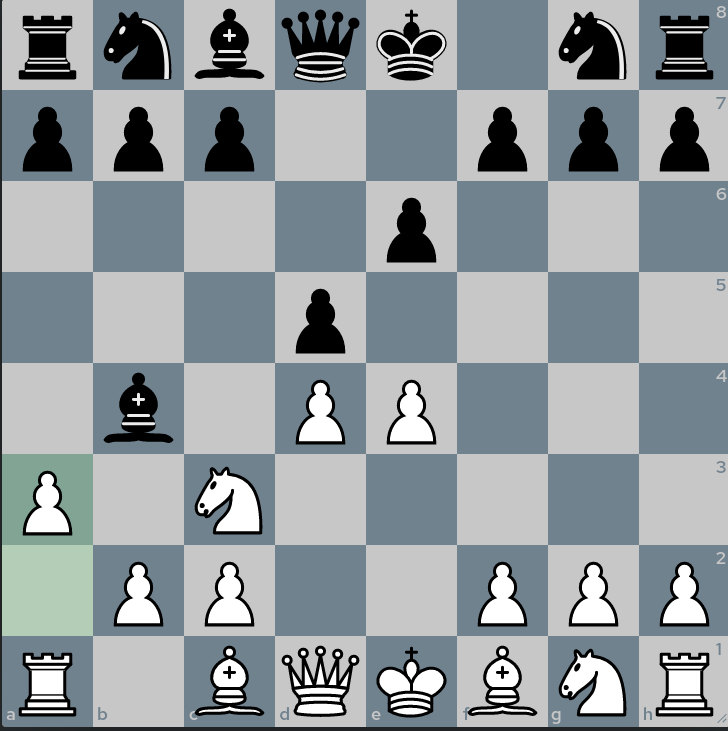
I had good results with 4. e5 and knew a ton of things, with practical experience, but the 4. a3!? was appealing. Not so well-known and played, but leading to original and sharp positions. I’m still playing 4. a3 in online games (with not so good results actually…) And the modern theory with the help of computer chess engines have shown that the move is dubious. It’s frankly sad retrospectively, a bit like King’s gambit or other openings.
Football matters
Another important aspect of the pre-game is that France was playing the final against Brazil. The night, around 9PM, way after the game that started at 2PM with an average duration of 4 hours.
I loved (and still love) football. I was a big fan of french national team at this time.
I’d like to put some context of the 1998 circa period. Most of the french people either didn’t care about football or, worth, were against their own national team. Very few people believed in France. It was an intense period of bashing, with an army of footix waiting for the elimination. The final match preparation France against Finland was a disaster and didn’t help. Thierry Henry was very young, the debates were as boring as today with: Djorkaeff or Zidane? and the medias didn’t help with Lequipe pushing sloppy and aggressive critics against the head coach Jacquet.
There was also the historical perspective. France never won world cup in football before 1998. France won Euro in 1984, reached semi-finals a few times, but well, loser. France was quite bad in collective sports in general, incapable of winning anything. Fortunately there were some exceptions. The first notable exception is the victory of Limoges in basket in 1992 that won European championship. The second déclic, that had a huge impact retrospectively, was the victory of Olympique de Marseille in 1993 against Milan AC. L’OM did what other french clubs are still incapable of: winning the Champions’ League. Despite billions of $$$ and the support of Qatar’s state.
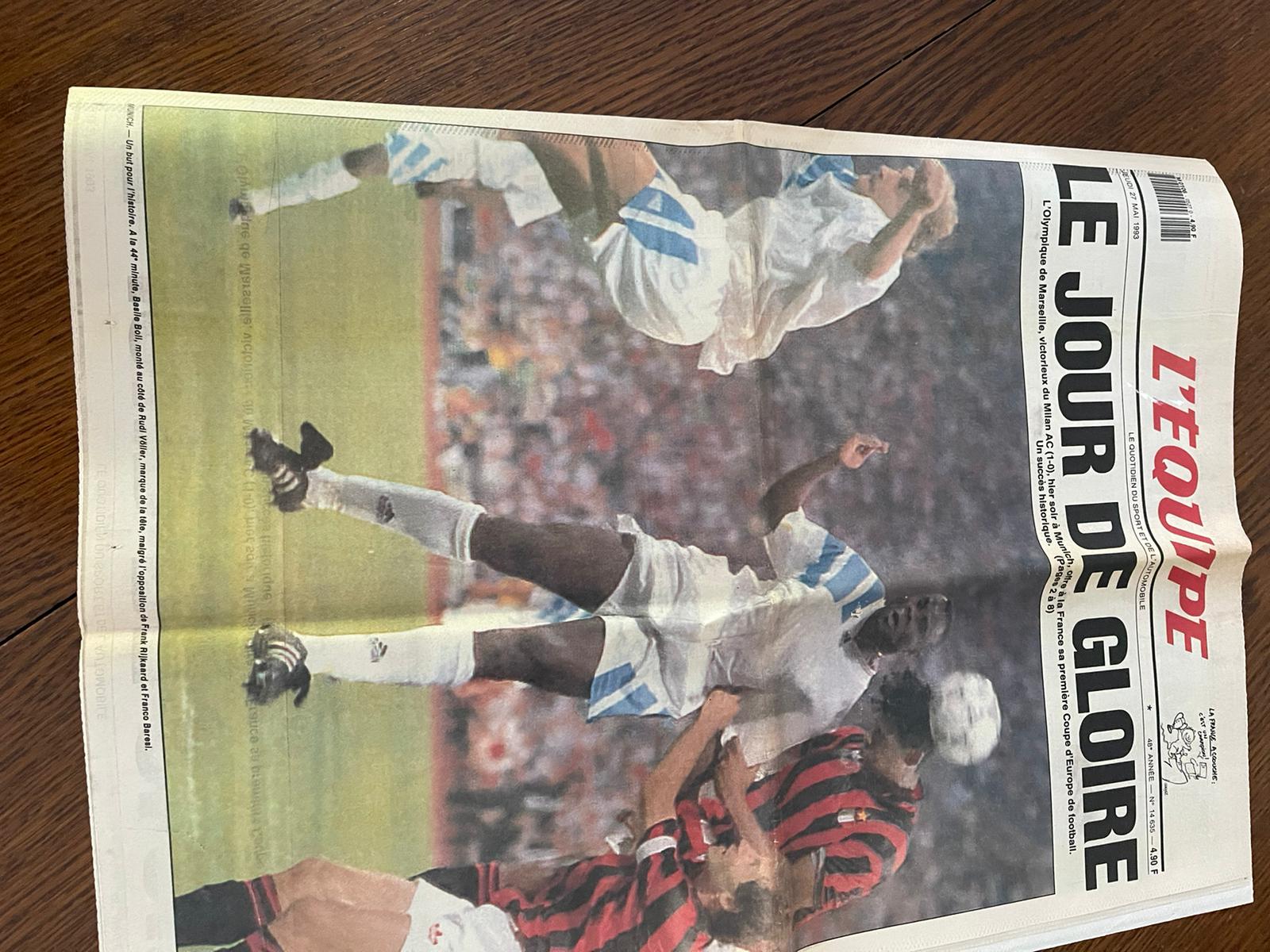
Prior to the beginning of the world cup in 1998, I was one of the rare believer of France. Because l’OM in 1993, because of the huge potential of the team and players… This France-Brazil was in the air.
The game
Anyway, let’s analyze this game. You can view the full game online. The opening was as planned:
- e4 e6 2. d4 d5 3.Nc3 Bb4 4. a3 ?!!?
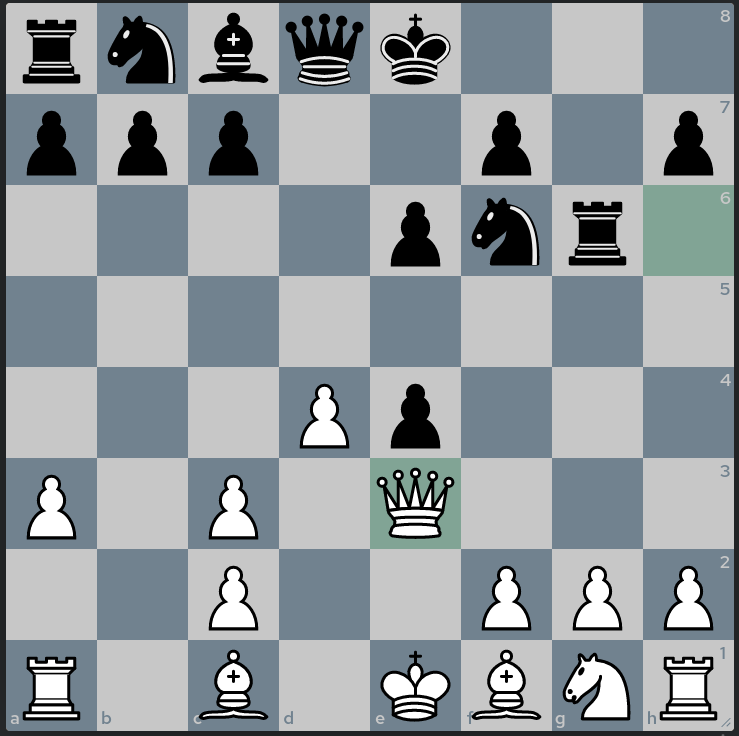
I hesitated with 9. Qd2. I think it was part of the preparation. Riazantsev knew his things, and played the usual lines with Nc6-Ne7. The 11…b5 was unknown to me, perhaps a novelty in 1998.
The position was exactly what I had in mind: open, sharp, uncertain, aggressive, fragile… Every move matters and any imprecision can make a huge difference. We’re playing for three results: win, draw, lose.
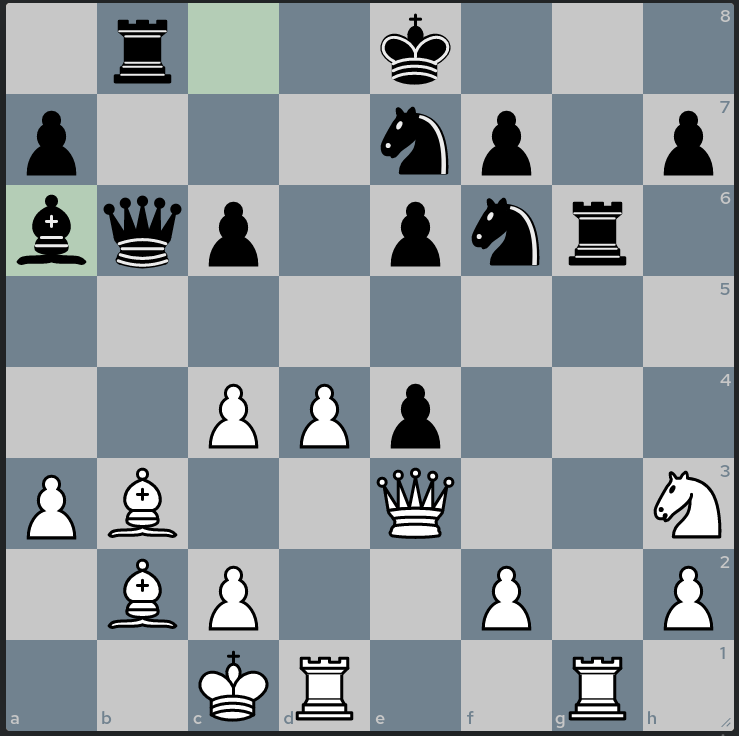
I had a clear, superior position. I’m not sure I had the same feeling and confidence as the modern chess engines that consider the position as completely winning. +5 is a lot and means white pieces are winning (it’s as having a rook more or a 3-0 in football).
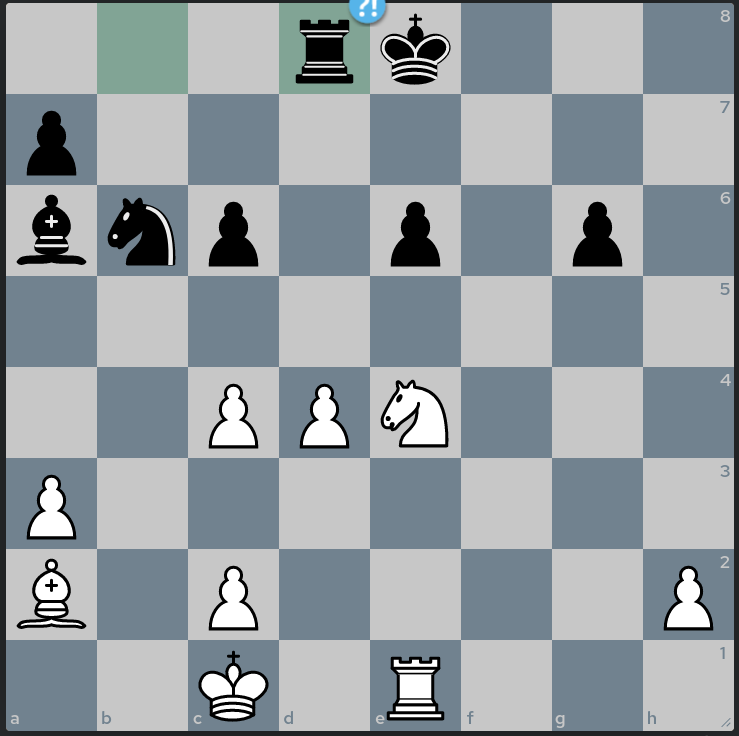
Unfortunately, I made a first imprecision and a series of weak, defensive moves. The control time was not helpful: the rule was 2 hours for playing 40 first moves, and then 1 hour for finishing the game. And we were closed to 40th move.
Hence, my advantage was not clear at all. But at least it should be a draw. Playing for two scores, winning or drawing.
The irrational moment
We reached this position where black have a queen, but only one pawn. And white pieces are very solid, with a rook and knight, and some pawns. Hence, black has no other choice that checking the king and avoiding a re-configuration of white pieces that could help promote the two pawns or gaining significant activity.
Not surprisingly, the russian player employed the right strategy and systematically checks the king.
46... Qf1+ 47. Ke4
47... Qb1+ 48. Kf4
48... Qf1+ 49. Ke4
49... Qb1+ 50. Kf4
50... Bf1+
Repeating the position one time. Two times. Three times.
Four times?
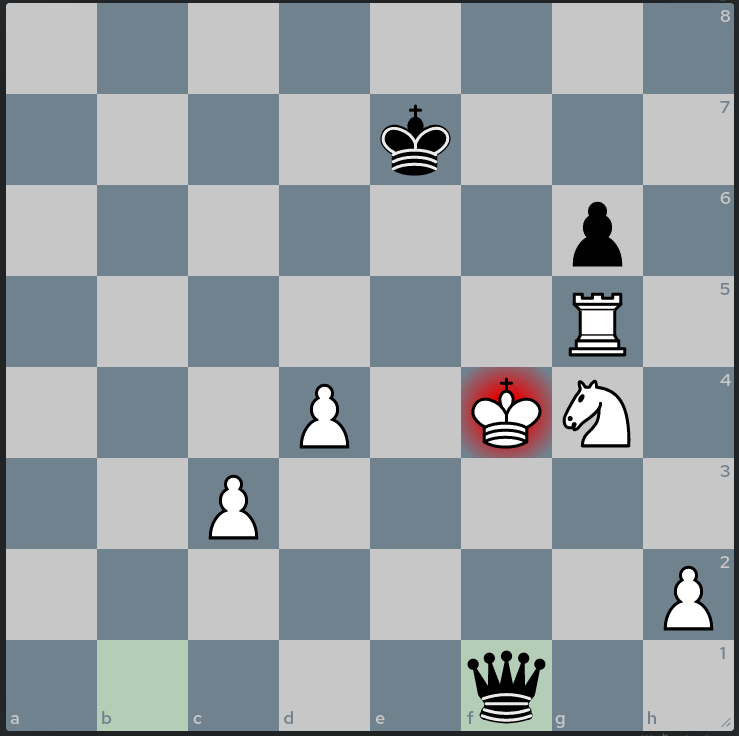
No. Instead of repeating again, or asking to the referee a draw, I played the infamous 51. Ke3??
Here you may wonder two things. Firstly, what’s happening after Qc1+… Yes, the position is lost for white. Resign. End of the game. It’s actually what has happened. It’s not an error of the re-transcript of the game. This move did happen.
Secondly, and the most important question: why did I play Ke3?
The obvious answer would be: “I haven’t seen Qc1+.” No. I did have seen Qc1+. I knew Ke3 was not a good move. I knew I had to repeat the moves and draw.
I didn’t “try” something either, like trying a bold move to absolutely win and a kind of russian roulette. The tournament was long enough. OK I could have some regrets because the position was winning, but it was not as straightforward as the chess engines of 2023 claim.
So, what happened?
I still have difficulties to explain. I don’t have a clear explanation. I really think I was in a strange mental state, in-between a black out, an automatic mode, a world with some regrets about the game, and a projection with the final France-Brazil to come. I played Ke3 like an automaton, without any control.
End
After this defeat, I scored a total of 6 points out of 9. For the record, I finished at the 6-11th position, a very good result, though I could have legitimate regrets. Riazantsev won the first place.
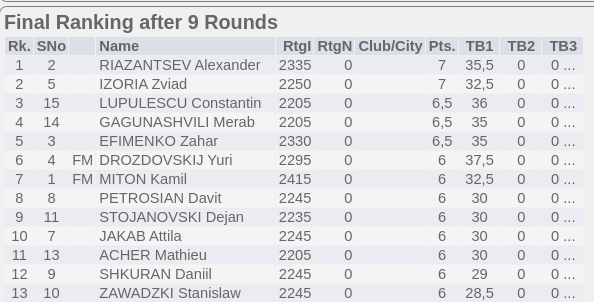
In football and few hours after the end of the game, France won against Brazil 3 0.
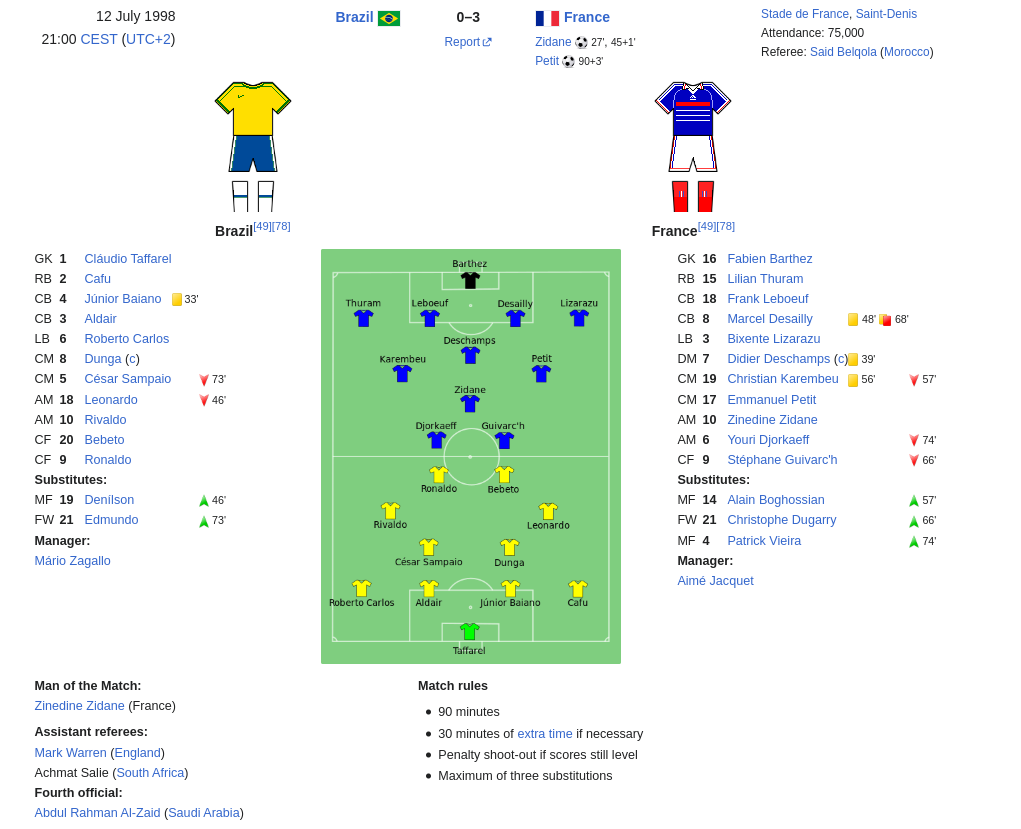
The fact that this moment happened in a key moment of an important European championship does not help to forget. The fact that France finally won the world cup in football the same day either ;) And well it was also my birthday. Planets wrongly aligned?
This kind of irrational moment rarely happens, but I suspect many chess players can share “similar” stories. Perhaps other sports’ professionals have such stories, something hard to explain, even years after. I think July 12, 1998 is the worst. I’m wondering what would be the corresponding moment for a football player or a football team. It’s life, and part of destiny!
football chess philosophy 